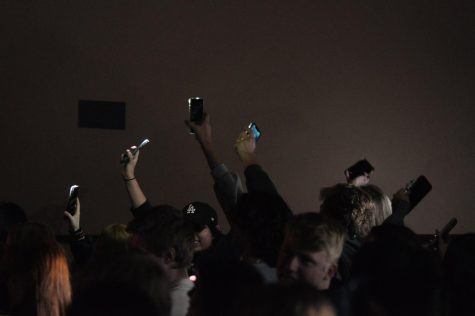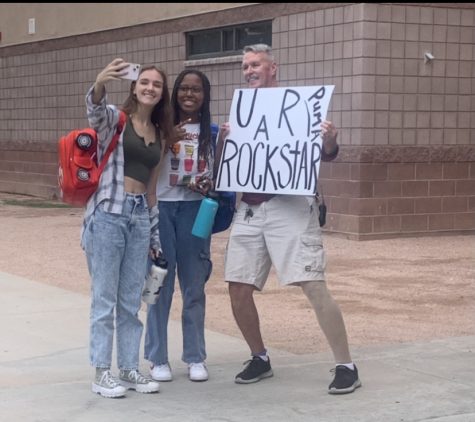Discrimination needs to be left in the past
Emotional, bossy, outspoken. The simplest of words can become an attack, once being used as a derogatory reference towards that of the female sex. It is not uncommon for a girl to be perceived as lesser than her male counterpart in a patriarchal society, where such phrases are thrown about freely, when describing a woman.
The outlook of women in today’s society has greatly become one of the most heated topics, throughout the years. There has been many great changes in such a movement, however, there is still much more to be done.
Feminist activist Beth Payne noted on the still negative perception of women, stating, “that women are less valued in society.”
This idea stretches from early childhood years, from the day where girls are thrown into a world of princesses and pink, while boys interact with robots. And if girls interact in more boyish ways, they grow up to be called a tomboy or even gay. Even in favorite childhood movies does society see the discrimination of women, with princesses awaiting their hero to save them. And even in the newer trend of leading ladies, making a movie about a heroine does not fully compromise to what is happening outside of Disney studios.
In society, women have the impression that they need to define themselves by their appearance. It is in this perception that women often receive a job because of their attractiveness, when in reality, there is more to it.
Strength and conditioning coach Joelyn Boone exemplified the stress over appearance for her first all female training program explaining, “Do you know what the number one concern was for parents on having this class throughout that day?” Boone answered with, “How are [their students] going to do their make-up and get cleaned up before school?”
This is one of the many labels placed upon women in the workplace as well. Along with this, a well-known perception is that women talk too much.
Based off a recent study on PBS’ Language Myth, in a job oriented environment,even when there is an equal number of both male and female, men spoke majority of the time.
Payne added to this by saying, “When women talked 30% of the time, the men would say the woman dominated the conversation.” This presents how ignorantly women are treated, in terms of being dismissed because they are believed to be outspoken.
The way men react towards women is a definite issue. Catcalling, obscene joke or language, persistent or unwanted attention, and even rape are common representations of a man harassing a woman, in which to the guy may not see it as something harmful. At the start of this year, there was a recent trend on twitter called #itsnotrape. This trend was referring to how the molestation of women was not considered rape, if she was supposedly asking for it.
Senior, Amanda Lee, stated, “You’ll hear people excuse it by saying, ‘boys will be boys’ or ‘they’re just trying to tell her that she is pretty and they don’t know how to say it.’”
These stresses of dismission and harassment however, come from multiple groups and even the same gender. By living in such a society, competition is inevitable, primarily shown between other women. Not only this, but girls often indulge in their own dismission of society.
Lee added that, “a lot of girls see that as something that is okay and happens in general…Some women don’t feel like it oppresses them in the same way.”
The major reason for this, is that for women it has become so common and it becomes tiresome to fight every time.
“Nobody has the energy to stand up for themselves all the time. So we end up just letting some of it go,” Payne stated.
Yet, there has been much progression with less discrimination of “this is only for boys” or “this is only for girls.
Boone noted the vast opportunities concluding, “You can be graceful, you can play a sport, you can be strong, you can be a female. You can do all of those things that are nontraditional.”
The future looks brighter, but in order for change, both men and women need to work together to make a equal, supportive society.

Kacee is staff reporter of the Culinary Arts and Science Department. As her junior year at Perry, this is her first time writing for the precedent.







